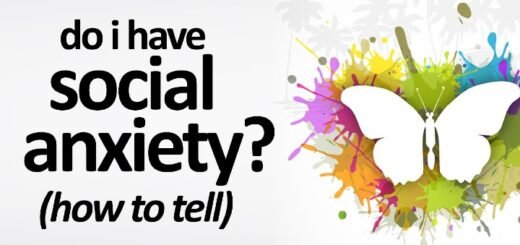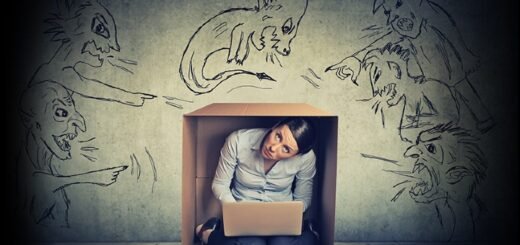Social Media’s Paradox: Amplifying Social Phobia
In recent years, social media has emerged as a double-edged sword in the context of social phobia, particularly within New Zealand. While platforms like Facebook and Instagram foster connection, they can simultaneously exacerbate feelings of isolation and anxiety. Understanding social_1 reveals how these digital interactions can create a paradox: individuals may feel more connected yet increasingly alone, as online communication often lacks the depth of face-to-face encounters.
For those grappling with social phobia, the challenge is navigating this complex landscape. Resources such as Overcoming Social Phobia provide valuable insights and strategies. Understanding social_1 is crucial in addressing these challenges, as it highlights the necessity of finding a balance between online engagement and real-world interactions to foster genuine connections.
The Dual Nature of Social Media
Social media has revolutionized how we communicate, offering a platform for connection that transcends geographical boundaries. Yet, this digital landscape presents a paradox for individuals suffering from social phobia. While it can provide a sense of belonging, it can also exacerbate feelings of isolation and anxiety.
For many, platforms like Facebook, Instagram, and Twitter serve as a lifeline, enabling them to connect with others without the immediate pressures of face-to-face interaction. However, this virtual connection can often feel superficial, leading to increased loneliness.
In a country like New Zealand, where the population is relatively small, social media can be both a blessing and a curse. While it allows for community building across regions, it can also foster comparisons and feelings of inadequacy, especially among young people. For those struggling with social phobia, the curated lives presented on social media may amplify their sense of isolation.
Understanding this duality is crucial. Social media can either serve as a platform for support or become another source of anxiety. To navigate this landscape, individuals must be mindful of their social media consumption and its impact on their mental health.
The Role of Anonymity in Online Interactions
One of the unique facets of social media is the anonymity it offers. This can be a double-edged sword for individuals with social phobia. On one hand, it allows them to interact without the immediate stress of being judged in person. Many find comfort in engaging with others in online forums or support groups, where they can discuss their struggles without the fear of face-to-face confrontation.
In New Zealand, various online communities and support networks cater to individuals with social anxiety. By participating in these spaces, individuals can share their experiences and learn from others who face similar challenges. However, this anonymity can also lead to negative behaviors, such as cyberbullying or trolling, which can further contribute to feelings of isolation.
It is essential for individuals to strike a balance. While engaging in anonymous online interactions, they should also seek opportunities for real-world connections, perhaps through local support groups or mental health organizations. The key is recognizing when online interactions are beneficial and when they contribute to a cycle of avoidance.
The Impact of Social Media on Self-Esteem
Social media platforms are often breeding grounds for comparison, which can significantly impact self-esteem. Individuals with social phobia may find themselves constantly measuring their lives against the seemingly perfect lives of others. This phenomenon can lead to increased feelings of inadequacy and anxiety.
In New Zealand, the rise of influencers and curated lifestyles can create an unrealistic standard for many. For those struggling with social anxiety, this can make social interactions feel even more daunting. The pressure to present a perfect image online can deter individuals from engaging in authentic relationships.
To combat this, it is crucial to foster an understanding of the curated nature of social media. Encouraging individuals to limit their exposure to accounts that trigger negative feelings can help. Additionally, promoting the idea that everyone has struggles, even if they are not visible online, can create a more balanced perspective on social media.
Creating Positive Online Communities
Despite the potential pitfalls of social media, it can also be a powerful tool for building positive communities. Many individuals with social phobia find solace in groups dedicated to mental health awareness and support. In New Zealand, organizations like Social Phobia New Zealand provide resources and support for those navigating social anxiety.
These online communities often emphasize understanding and empathy, offering a safe space for individuals to share their experiences. Engaging with such communities can help individuals feel less isolated, fostering a sense of belonging.
Moreover, participating in discussions about mental health can empower individuals to advocate for themselves and others. By creating and maintaining positive online spaces, users can counteract the negative aspects of social media. Encouraging open conversations about social phobia can lead to greater awareness and understanding within the broader community.
Social Media and Help-Seeking Behavior
Social media can serve as a bridge to accessing mental health services. For individuals with social phobia, the thought of seeking help in person can be overwhelming. However, social media can help normalize the conversation around mental health, making it easier for individuals to reach out for assistance.
In New Zealand, many mental health organizations utilize social media to share resources and connect individuals with counseling services. Platforms like Instagram and Facebook can be used to promote workshops, webinars, and support groups. This accessibility can encourage individuals to take the first step towards seeking help.
It is vital for individuals to recognize the importance of help-seeking behavior. Understanding that reaching out for support is a sign of strength can empower those struggling with social phobia to take action. Social media can play a pivotal role in this process, providing the information and encouragement needed to seek help.
The Influence of Social Media on Coping Strategies
For individuals grappling with social phobia, developing effective coping strategies is essential. Social media can be a useful tool for discovering new techniques and sharing experiences with others who face similar challenges.
Online platforms often host discussions about various coping strategies, such as mindfulness, cognitive behavioral techniques, and exposure therapy. In New Zealand, there are many resources available online that provide information about mental health strategies tailored for local communities.
However, it is essential to approach these resources critically. Not all information found on social media is accurate or helpful. Individuals should seek out verified sources and professional guidance when exploring coping methods. Engaging in discussions within supportive online communities can also help individuals gain insights into effective strategies that others have found beneficial.
Balancing Online and Offline Experiences
To navigate the complexities of social media and social phobia, it is crucial to find a healthy balance between online and offline interactions. While social media can provide a sense of connection, it should not replace genuine face-to-face relationships.
In New Zealand, individuals can take advantage of local events, workshops, and community gatherings to foster real-world connections. Engaging in activities that promote social interaction can help reduce feelings of isolation and anxiety.
Setting boundaries around social media usage is also essential. Individuals can create designated times for online engagement and prioritize offline activities that promote well-being. By consciously choosing to engage in both online and offline spaces, individuals can cultivate a more balanced social life.
Ultimately, understanding and navigating the impact of social media on social phobia requires awareness and intention. By fostering authentic connections and seeking support, individuals can find ways to thrive both online and in their everyday lives.
FAQs
What is social phobia?
Social phobia, or social anxiety disorder, is characterized by an intense fear of social situations where one may be judged, embarrassed, or scrutinized. This condition can significantly impact daily life, making it difficult to engage in common activities such as speaking in public or meeting new people.
How does social media influence social phobia?
Social media can have a dual effect on social phobia. On one hand, it provides a platform for individuals to connect and communicate without the immediate pressure of face-to-face interactions. On the other hand, it can exacerbate feelings of isolation and anxiety due to the constant comparison with others and the potential for negative feedback.
Can social media help individuals with social phobia?
Yes, for some individuals, social media can serve as a valuable tool for easing into social interactions. It allows them to build confidence in communication and maintain connections with others, which may help reduce feelings of loneliness and isolation associated with social phobia.
What are the negative effects of social media on social phobia?
While social media can facilitate connections, it can also lead to increased feelings of isolation and anxiety. The curated nature of online profiles can foster unrealistic comparisons, and the pressure to maintain a certain image can heighten social anxiety, making it harder for individuals to engage in real-life interactions.
How can individuals manage social phobia in the age of social media?
Managing social phobia in the digital age involves setting healthy boundaries on social media use, focusing on positive interactions, and gradually exposing oneself to real-world social situations. Seeking support from mental health professionals can also provide strategies tailored to individual needs.
Is there a paradox in social media usage regarding connection and isolation?
Absolutely. Social media creates a paradox where individuals can feel simultaneously connected and isolated. While they may interact with others online, the depth of these connections often lacks the emotional support found in face-to-face relationships, leading to feelings of loneliness despite being ‘connected’ digitally.
What should individuals be aware of when using social media to cope with social phobia?
Individuals should be aware of the potential for social media to trigger anxiety and exacerbate feelings of inadequacy. It’s important to recognize when online interactions are helpful versus when they contribute to feelings of isolation. Balancing online engagement with real-world connections is crucial in understanding social_1 and maintaining mental well-being.
References
- Social Phobia Foundation New Zealand – A comprehensive resource that offers information, support, and research on social phobia, including the effects of social media on individuals with this condition.
- The Relationship Between Social Media Use and Social Anxiety Disorder – A research article exploring the connections between social media usage and the development or exacerbation of social anxiety symptoms.
- Social Media Use and Social Anxiety: A Systematic Review – A systematic review that analyzes various studies on how social media impacts social anxiety, providing insights into both positive and negative effects.
- The Paradox of Social Media and Social Anxiety – An article discussing the contradictory effects of social media, which can create feelings of connection while simultaneously increasing feelings of isolation and anxiety.
- Social Media and Anxiety: What the Research Says – An overview by the American Psychological Association that examines the relationship between social media use and anxiety, highlighting key findings from recent studies.




